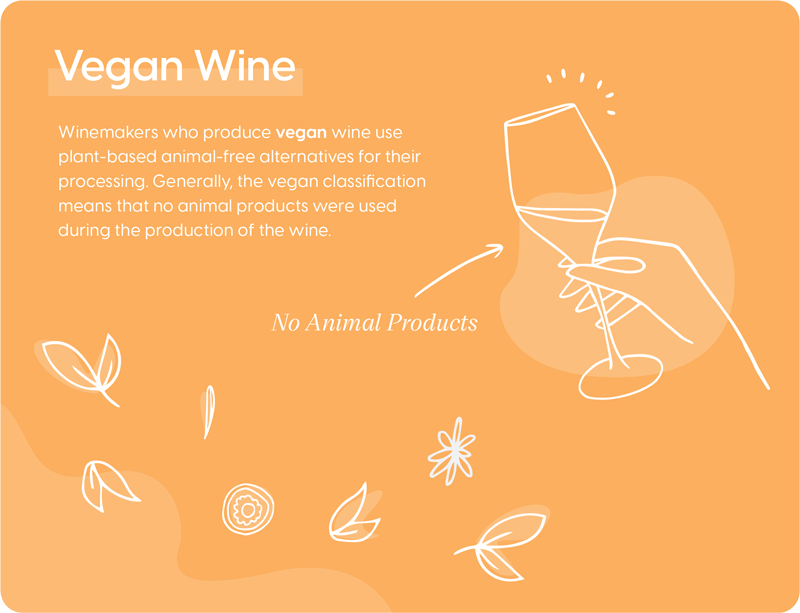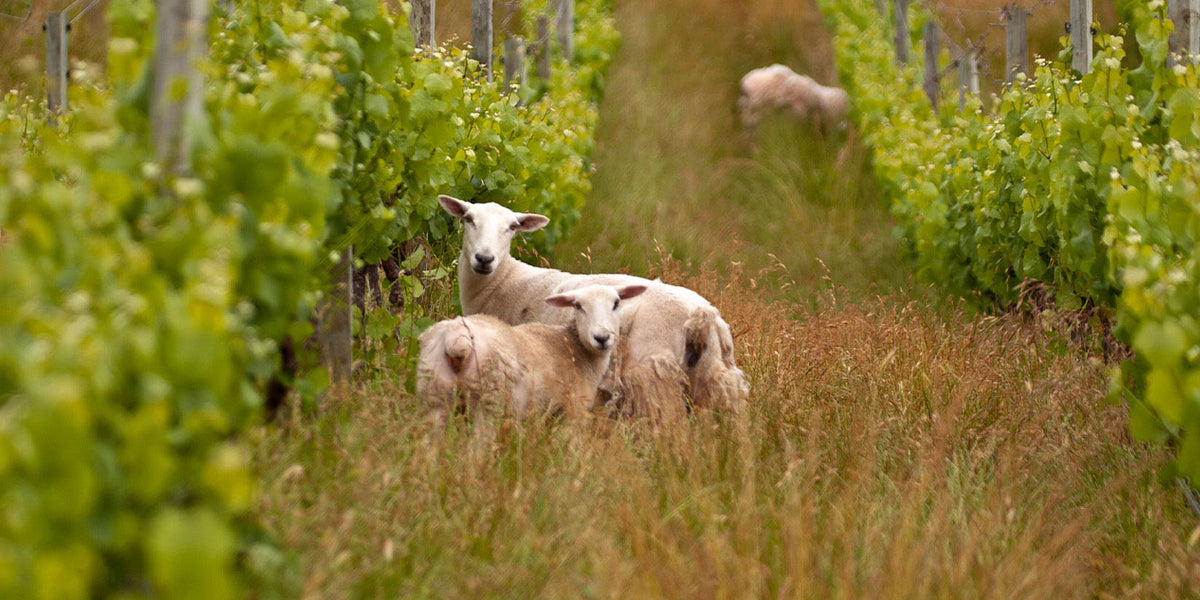Explore Eco-Friendly Wines
For many, “eco-friendly” has gone from a catchy buzzword to a way of life. Consumers are becoming increasingly environmentally conscious, opting to drive vehicles with lower emissions, shop with reusable grocery bags, steer away from fast fashion, install energy-friendly home appliances, and eat local foods when they are available. There are eco-friendly alternatives to almost every consumable product, and wine is no exception!

For all of our earth-loving wine drinkers out there, we’re looking at four different types of eco-friendly wines; biodynamic wine, organic wine, vegan wine, and natural wine. Chances are, you may already know about one or all of these types of wine, but what is the difference between them? Do they really live up to the hype?
Biodynamic Wine
According to the Biodynamic Farming and Gardening Association, biodynamic farming is “a spiritual-ethical-ecological approach to agriculture, gardens, food production, and nutrition.” Biodynamic farmers view their farm or vineyard as one solid organism — a self-sustaining ecosystem. These farming philosophies and practices apply a holistic approach to the entire farming cycle.
The idea behind biodynamic farming predates the modern-day organic movement. A philosopher named Rudolph Steiner started practicing biodynamic agriculture back in the 1920s. He had a deep-rooted (pun definitely intended) belief that one could live and farm in harmony with the Earth. Biodynamic farms and vineyards follow the Biodynamic Calendar, which is largely based on astronomical factors, such as the phases of the moon. Based on this calendar, planting activities are broken into four different days:
-
Fruit Days - ideal for harvesting
-
Root Days - best for pruning
-
Flowering Days - do nothing to the vines
-
Leaf Days - best for watering

Biodynamic farms and vineyards use no chemical fertilizers or pesticides. Instead, they fertilize the soil naturally using natural compost and manure from various animals that live on the farm. In one of the most popular fertilizing methods, cow horns are hollowed out and filled with a special compost mixture. The horns are then buried for up to six months before being dug up again. The mixture in the horns is then used to fertilize plants around the farm or vineyard.
The standards to become a certified Biodynamic farm or vineyard are quite strict. These standards are set by the Demeter Association and used worldwide. While biodynamic farms can be found around the globe, they are most popular in Europe. While some skepticism exists about biodynamic practices, many farmers and vintners have observed a positive impact on vine yields, soil quality, and overall biodiversity. When a wine is certified biodynamic or Demeter, you’ll find a mention of this on the label.
So, do biodynamic wines taste any different than conventional wines? That depends on who you ask. Those who swear by the practice argue that biodynamic wines have higher quality in their flavor profile; however, most wine tasters agree that there is no discernable difference between the two.
Organic Wine
Organic wine is made with grapes grown without synthetic fertilizers, herbicides, or pesticides. All of the additional ingredients used to make the wine must also be certified organic, and there can be no added sulfates. It is worth noting that there is a difference between organic wines and wines that are simply made with organic grapes. Organic wines are more popular in the United States than in any other country, because organic farming practices tend to be more costly. This is often reflected in the price of a bottle of organic wine. However, this does not necessarily indicate higher quality, as organic wines do not taste any different from conventional wine. Many wineries are considered “Napa Green” and practice sustainable farming methods, but for one reason or another do not feel called to go through the rigorous and expensive process of being certified organic.

The qualifications for a wine to be considered organic are not quite as stringent as those for biodynamic classification, but they’re still strict. Organic wine standards vary by country rather than following a single worldwide standard. However, the list of these requirements to be organic can still be quite long, and they are subject to the governing body of the wine’s country of origin. In the United States, organic wine standards are determined by the USDA. In Europe, standards are managed by the ECOCERT.
Vegan Wine
Wine is just fermented grape juice, right? Doesn’t that make it vegan by default? Fair question, but there’s a bit more to it than that.
The definition of vegan wine has some nuance. Generally, the vegan classification means that no animal products were used during the production of the wine. In some instances, egg whites or casein might be used to remove sediment from the wine, milk-based glues could be used as binding agents in agglomerated corks, and beeswax could be used to seal bottles. Any of these practices would keep wine from being considered vegan. Winemakers who produce vegan wine use plant-based or synthetic alternatives for all of these processes.

It’s worth noting, however, that this definition of vegan wine only refers to how the grapes are handled after harvest. For hardcore vegans, how the grapes are grown is also an important point of interest. Are animals used to help harvest the grapes? Is animal manure used to fertilize the vines? If the answer to either of these questions is yes, vegan purists may argue that the wine is not truly vegan. Following this strict definition of vegan, many biodynamic and organic wines would not be considered vegan.
Natural Wine
Rounding out our list of eco-friendly wines, we have a variety that’s become more popular in the 21st century: natural wine.
While natural wine may seem like a fad, the technique used to make it is very traditional — ancient, even. The modern natural wine movement began in rural France in the 20th century. Eventually, its popularity came to the United States in the early 2000s, and the trend has grown ever since.
Natural wine is made with hand-picked organic or biodynamically grown grapes that were never exposed to pesticides or herbicides. Once the grapes are harvested and pressed, the resulting juice is fermented without additives. Unlike vegan wine, which tastes essentially the same as conventional wine, natural wine typically features a distinct taste that’s often described as “funky” or “barnyard-y.” It doesn’t get more natural than that!

When it comes to qualification standards or guidelines, there is no association or governing body that determines when a wine is “natural.” Although some parameters guide natural wine classification, there are currently no official distinctions for natural wines. Fittingly, the natural wine movement seems to be growing … well, naturally.
Intrigued and ready to try an eco-friendly wine? You’re in luck — there are plenty of options to choose from! Whether you’re interested in the funky flavors of natural wine or simply want to offer a vegan option at your next dinner party, there are several wine options to choose from that are delicious and environmentally friendly. To find what you’re looking for, just look at the back of the bottle. Winemakers who produce natural and vegan wines are understandably proud of their products, so you’ll usually find the information you’re looking for right there on the label.
BLOGS / INFOGRAPHIC








